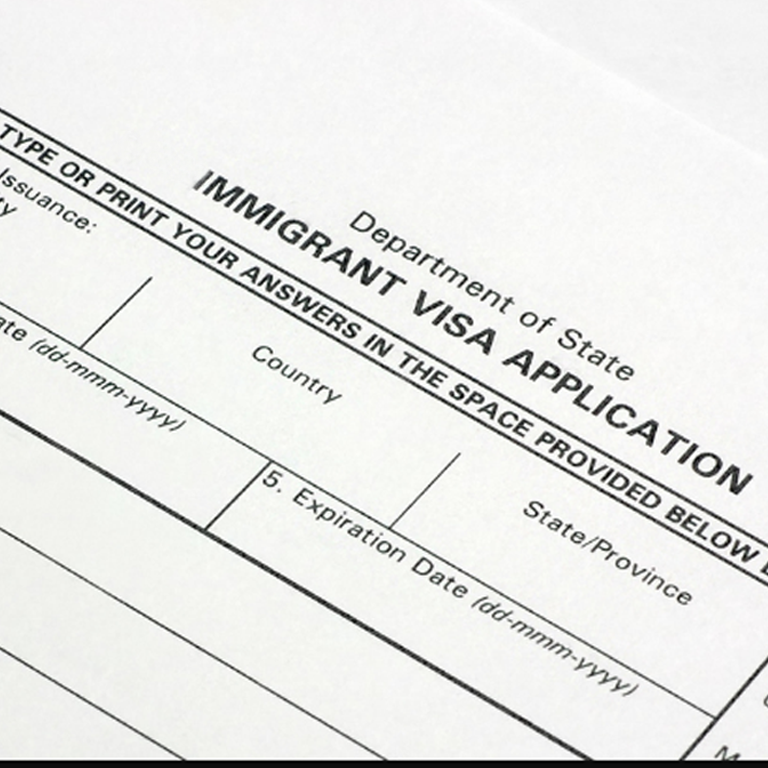
Immigration Services
One of the most common forms of immigration is through the close family ties to the US citizens or permanent residents.
The overall cap for the allotment of immigrant visas based on the family sponsorship is set at 480,000 visas for each fiscal year. This number may be enhanced by the unused visas from the previous fiscal years, and by the unused visas in the employment based preferences. Immediate relatives of US citizens may be admitted to unlimited number but come under overall cap of 480,000 visas thereby reducing the number of visas available for other family based immigrants. However, annual available visas for all other family based immigrants may not be reduced more than 226,000 visas for each fiscal year regardless of the demand of the visas for the immediate relatives of the US Citizens. In a situation where there is more demand for visas from immediate relatives of the US Citizens, annual cap may be raised to accommodate the excess numbers required for the immediate relatives.
The State department has responsibility to keep track of the allotment or issuance of visas within each preference and for each country to see that the numerical limit placed on each category and for each country is not exceeded.
The following groups are eligible to obtain permanent residence in the United States:No derivative status is accorded to the family members of aliens who are eligible to be classified as immediate relatives of the US citizen. Therefore for immediate relative classification, eligibility must be established on an individual basis. Because of this, USC is required to file separate petition to classify his family member as immediate relative. However, Children of an individual who is the spouse of the deceased US citizen; and Children of an individual who qualifies as battered spouse of the US Citizen are entitled to derivative classification although they are classified as immediate relatives and therefore no separate petition is required.
In contrast, the spouse and the children of individuals who are eligible for classification in one of the family based preferences are entitled to derivative classification. No separate visa petition is required on behalf of such family members as they are derivatively included in the petition filed on behalf of the spouse or parent.
Further, individuals eligible for classification as derivatives are given the same preference and category as the principal immigrant (Spouse or Parent) for the allocation of visas.
Allocation of Visas: Family sponsored preferences and allocation of visas for each preference are as follows:
The procedure for obtaining permanent residence based on the family is two-step process. First, US Citizen or permanent resident relative must sponsor the aliens for permanent residence. US relative files Form I-130, petition for alien relative with the Immigration services to classify the alien as qualified individual to immigrate. In some cases where alien is the spouse of the deceased citizen or battered spouse or children of the United States citizen or permanent resident may self-petition for permanent residence without requiring any US relative to sponsor immigrant visa. Once the alien is qualified to immigrate, based on the preference given to him or her, and availability of visa number for such preference, he or she will be able to apply for permanent residence in the United States. An individual can apply for permanent residence at the US Consulate abroad that has jurisdiction over the alien, or incase alien is present in the United States, may apply for permanent residence through application for adjustment of status.
